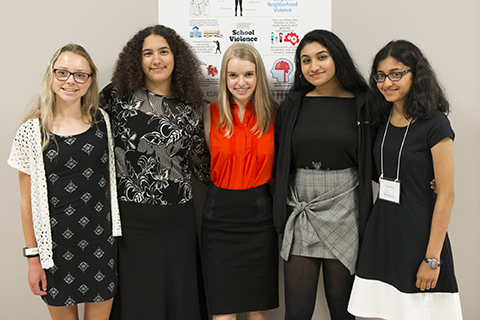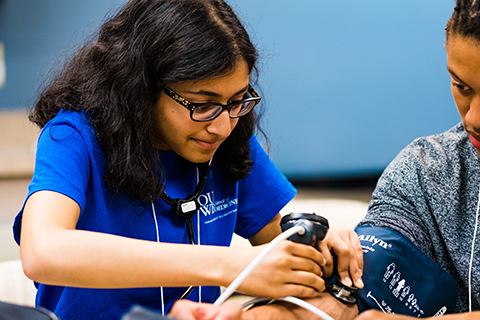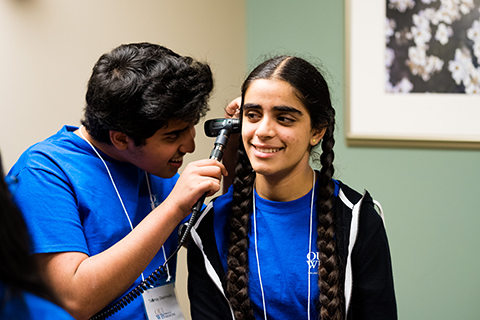
High school students participating in OUWB’s Future Physicians Summer Enrichment Program (FPSEP) worked in groups to complete a research project. On their last day of the program, they presented these projects to a room of family members, peers and OUWB faculty members.
While the majority of their time in this day-camp was spent learning from faculty members and doing hands on work, students were given a few hours at the end of each day to select their topics, research their topics, design a poster and prepare a verbal presentation.
According to Caryn Reed-Hendon, OUWB director of Diversity & Inclusion, they have students work on research projects to “sharpen their critical thinking skills in regard to the multiple components of health equity, which consist of environment, socioeconomic status, geographic location and other determining factors that impact community health.”
Choosing a research topic
The faculty curriculum coordinators who work with the program select a series of topics that will be covered over the two-week program. The student groups pick from these topics for their research projects and narrow them down into a series of significant sub-categories.
Molly Capelli’s group selected community violence, and they decided to discuss gang violence, school shootings, school violence and sexual assault.
“We wanted a topic that would deal not only with mental health, but also social determinants of health,” Capelli says.
“We focus on the effects that community violence has on community members’ physical health, like a bullet wound, and their mental health, like PTSD or depression,” explains fellow group member Arwa Hassaballa.
This group found community violence to be a relevant and timely topic because of their proximity to Detroit, especially lower-income areas of the city that deal with a lot of violence, and the fact that topics like school shootings and sexual assault have recently been causing distress across the country. “It’s important to bring about awareness,” Capelli says.
“A lot of people don’t think about it that much,” says peer Julia James. “They think it doesn’t affect them, but it does.”
The students confirm that the process did improve these skills, and more.
“Doing the research taught us how to search for things, how to find information on a website and then how to relay that back into your own words,” said Rachelle Deng, who’s group presented about mental health.
“Also, how to know if the information is credible or not,” added Capelli.
When working on their projects, Reed-Hendon explains that the students also use skills such as: “researching effectively, identifying good sources for information, learning to synthesize information and being able to present it well in front of an engaged, interested audience.”
 |  |

